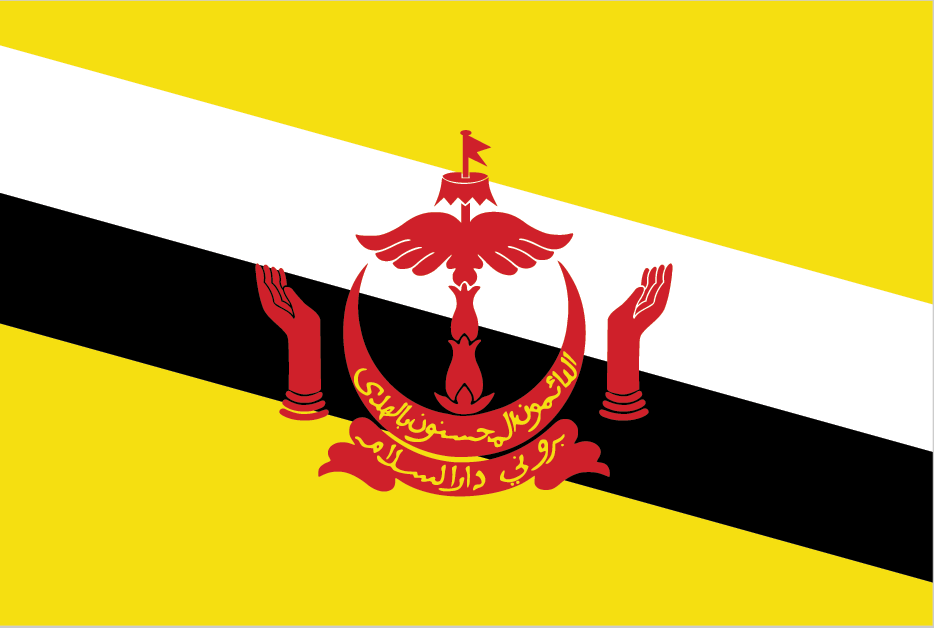
Sustainability Efforts
Country: Brunei
Explore sustainability efforts in Brunei. The United States Environmental Protection Agency (“EPA”) said it well when they state:
“Sustainability is based on a simple principle: Everything that we need for our survival and well-being depends, either directly or indirectly, on our natural environment. To pursue sustainability is to create and maintain the conditions under which humans and nature can exist in productive harmony to support present and future generations.”
About Brunei
Brunei Darussalam, officially known as the Nation of Brunei, the Abode of Peace, is a small yet affluent country located on the island of Borneo in Southeast Asia. It is nestled between the Malaysian state of Sarawak and the South China Sea. Brunei is recognized globally for its vast reserves of oil and natural gas, which have been the primary drivers of its economy and have afforded the country an exceptionally high standard of living. Its natural beauty, including lush rainforests, unspoiled beaches, and a biodiverse environment, is captivating and forms an integral part of the country’s identity. The nation’s opulent mosques, such as the Omar Ali Saifuddien Mosque and Jame’Asr Hassanil Bolkiah Mosque, offer a glimpse into the country’s deep-rooted Islamic traditions and architectural grandeur. Sustainability efforts in Brunei will enhance the country’s future.
Sustainability Efforts
Toggle each button below to “open” and “close” the presented data.

Poverty: Brunei Darussalam, with its significant oil and gas reserves, has one of the highest per capita incomes in Southeast Asia. The poverty rate is exceptionally low, with the government providing extensive social welfare programs, including subsidies for food, housing, and healthcare.

Hunger: In Brunei, the issue of hunger is almost non-existent due to the country's wealth. The government provides various social assistance programs to ensure that no citizens go hungry. Moreover, Brunei is actively working on its food self-sufficiency strategy, targeting increased local rice and vegetable production.

Healthcare: Brunei provides free healthcare to all its citizens, funded by the country's oil revenues. The country's healthcare system is advanced, with a strong focus on public health and preventive medicine. Brunei's healthcare system is ranked among the best in Asia.

Education: Education is highly valued in Brunei, with heavy investment in the sector. Schooling is compulsory for children up to the age of 16 and is provided free of charge at state institutions. The country has a near 100% literacy rate and has embraced a bilingual education system.

Gender Equality: Brunei has made significant strides in promoting gender equality. Women in Brunei receive equal education opportunities and have been closing the gap in workforce participation. The government has also implemented various initiatives to promote women in leadership positions.

Clean Water Sanitation: Brunei has one of the highest rates of access to clean water and sanitation facilities in Southeast Asia, with nearly 100% of the population having access to these services. The government has implemented strict water quality standards to ensure the health and safety of its citizens.

Affordable Clean Energy: Brunei has recognized the need to diversify its energy sources and has begun investing in renewable energy. The government has set a target to produce at least 10% of its total power generation from renewable sources by 2035.

Economic Growth: Brunei's economy is heavily dependent on oil and gas, which accounts for the majority of its revenue. To diversify its economy, the government has implemented strategies to develop sectors such as information and communication technology, finance, and halal manufacturing.

Industry Innovation: Brunei is actively promoting industry innovation, particularly in the fields of information technology and biotechnology. The government has set up the Brunei Research Council to promote and coordinate research and development activities.

Reduced Inequalities: Brunei has a relatively low level of income inequality, thanks in part to the government's comprehensive welfare programs. The government has implemented various measures to ensure social cohesion, such as providing housing subsidies and free education and healthcare.

Sustainable Cities: Brunei is investing in sustainable urban development, with a focus on smart city initiatives. The country's capital, Bandar Seri Begawan, is aiming to become a 'Smart City' by enhancing urban services through digital technology.

Responsible Consumption and Production: Brunei is working to promote responsible consumption and production through various initiatives, including promoting recycling and waste management practices and implementing energy efficiency measures.

Climate Action: As part of its commitment to the Paris Agreement, Brunei has pledged to reduce its greenhouse gas emissions by 20% by 2030. The country is also investing in renewable energy and has implemented measures to conserve its forests, which serve as natural carbon sinks.

Aquatic Environment: Brunei, located on the island of Borneo, is rich in marine biodiversity. The government has taken steps to protect its marine environment through the establishment of marine protected areas and implementing sustainable fishing practices.

Natural Environment: Brunei's rainforests are home to a rich diversity of flora and fauna. The government has implemented measures to protect these areas, including establishing national parks and promoting sustainable tourism practices.

Peace and Justice Institutions: Brunei is a peaceful country with strong rule of law. The government has implemented measures to strengthen its judicial institutions and promote transparency and accountability.

Partnerships for the Goals: Brunei actively collaborates with international partners to achieve the Sustainable Development Goals. This includes engaging with ASEAN, the United Nations, and other international bodies on issues ranging from climate change to sustainable development.



